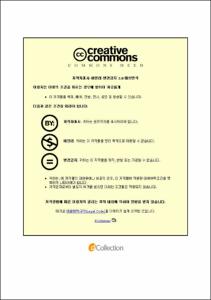교육서비스품질, 학생만족, 관계품질, 그리고 행동의도의 구조적 관계에 대한 실증적 연구
- Abstract
- This study analyzes the structural relationship among Education Service Quality, Student Satisfaction, Relation Quality, and Behavior Intention of the Self-Supporting Private High Schools based on the actual data.
Above all, I have read previously published books and articles about these research items to gain knowledge of their theoretical background and then conducted a sample survey of the students studying in these types of schools, the final result of which is expected to offer more concrete evidence of their conceptual models.
To analyze the data collected from the student survey, I have adopted SAS 9.1, one of the most widely used statistics programs in the areas of social sciences. Also I have adopted AMOS 4.0, another statistics program, for comprehending research models.
I have also set up study models and hypothesis with reference to the previous research results and have verified them, which have been concluded as follows:
1. According to the test results of Education Service Quality and Student Satisfaction, the Circumstantial Indexes and Input Indexes of Education Service Quality have a meaningful effect on the degree of Student Satisfaction. However, the Participative Indexes do not contribute to heightening the level of Student Satisfaction.
2. According to the estimated results of the of Education Service Qualities and Relations Qualities, the Circumstantial and Participative Indexes of Education Service Quality do not affect the numerical change of the latter part. The Participative Indexes of Education Service Quality have turned out to influence the Student Satisfaction largely.
3. According to the estimated results of Student Satisfaction and Relation Quality, the former part has a close influence upon the latter part.
These conclusions mean that The Education Service Quality influences Student Satisfaction directly and also influences it indirectly through Relation Quality. Therefore, in terms of relationship marketing, if students, consumers of education service, are satisfied with its Education Service Quality, the relationship between students and school can be improved.
4. According to the estimated results of Student Satisfaction, Relation Quality, and Behavior intention, Relation Quality is possibly related to Behavior Intention to a certain extent, while Student Satisfaction is not linked to Behavior Intention.
Also, I have investigated statistically how much the test results of Relation Quality and Behavior Intention change according to newly admitted students’ motivations for school application, which shows that, whether they decide by themselves or are recommended by their parents and teachers, its effect on Relations Quality and Behavior Intention is only a little, almost meaningless. As a result, it seems like separate management programs for various student types need not be developed. To be more effective in the administration methods of the Self-Supporting Private High Schools, the Education Service Quality must be advanced as the most critical success factor in the competition with regular schools
- Issued Date
- 2006
- Awarded Date
- 2006. 8
- Type
- Dissertation
- Keyword
- Education Service Quality Student Satisfaction Relation Quality Behavior Intention Relationship Marketing the Self-Supporting Private High Schools
- Publisher
- 부경대학교 대학원
- Affiliation
- 부경대학교 대학원
- Department
- 대학원 정보시스템협동과정
- Advisor
- 김하균
- Table Of Contents
- I. 서론 1
1. 연구의 배경 1
2. 연구의 목적 3
3. 연구의 방법 4
4. 본 논문의 구성 5
Ⅱ. 이론적 배경 및 선행 연구의 고찰 8
1. 자립형 사립고등학교 제도 8
1) 도입 배경 8
2) 자립형 사립고등학교의 특징 9
3) 자립형 사립고등학교에 있어서 관계 마케팅의 유용성 10
2. 교육 서비스 품질 13
1) 서비스의 개념 및 특성 13
(1) 서비스의 개념 13
(2) 서비스의 특성 13
2) 품질의 개념 및 특성 15
3) 서비스 품질의 개념 15
4) 서비스 품질 측정 모형에 대한 고찰 17
(1) 일반적 서비스 품질 측정 모형 18
(2) 교육 서비스 품질 측정 모형 20
5) 교육 서비스 품질의 측정 25
(1) 교육 서비스 품질의 개념 및 특성 25
(2) 교육 서비스 품질 측정에 대한 선행 연구 26
3. 학생 만족 및 관계 품질에 관한 이론적 고찰 30
1) 학생 만족 30
2) 관계 품질 31
4. 행동 의도에 관한 이론적 고찰 36
1) 행동 의도 36
5. 서비스 품질, 고객 만족, 관계 품질, 그리고 행동 38
Ⅲ. 조사 및 분석 방법의 설계 41
1 조사 표본의 설계 및 예비 조사 41
1) 조사 표본의 설계 41
2) 설문지의 설계 41
3) 설문지의 구성 42
2. 연구 모형 44
3. 연구 가설의 설정 46
4. 연구 가설의 검증 방법 48
5. 변수의 조작적 정의 51
1) 교육 서비스 품질 51
2) 학생 만족 52
3) 관계 품질 52
4) 행동 의도 53
Ⅳ. 실증 분석과 연구 결과의 해석 54
1. 연구 표본의 특성 54
1) 설문지 배부 및 회수 현황 54
2) 연구 표본의 인구·통계적 특성 54
2. 측정 도구의 평가 56
1) 타당성 및 신뢰성 평가 56
2) 요인 분석 58
3) 상관관계 분석 59
3. 연구 가설의 검증 60
1) 연구 모형의 적합도 분석 결과 60
2) 연구 가설의 검증 결과 62
(1) 교육 서비스 품질에 대한 학생 만족 63
(2) 교육 서비스 품질에 대한 관계 품질 64
(3) 학생 만족에 대한 관계 품질 65
(4) 학생 만족에 대한 행동 의도 65
(5) 관계 품질에 대한 행동 의도 66
3) 분석 결과의 요약 67
Ⅴ. 결론 70
1. 연구 결과의 요약 및 시사점 70
2. 연구의 한계 및 향후 연구 과제 75
참고문헌 76
부록(설문지) 84
- Degree
- Doctor
- Files in This Item:
-
-
Download
 교육서비스품질, 학생만족, 관계품질, 그리고 행동의도의 구조적 관계에 대한 실증적 연구.pdf
기타 데이터 / 707.22 kB / Adobe PDF
교육서비스품질, 학생만족, 관계품질, 그리고 행동의도의 구조적 관계에 대한 실증적 연구.pdf
기타 데이터 / 707.22 kB / Adobe PDF
-
Items in Repository are protected by copyright, with all rights reserved, unless otherwise indicated.